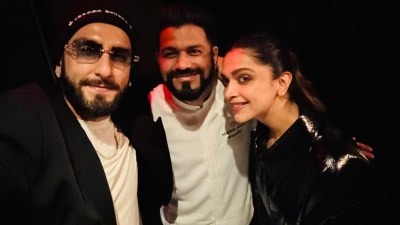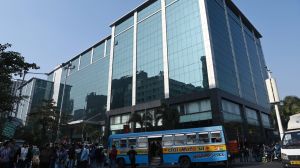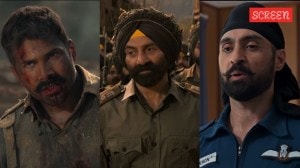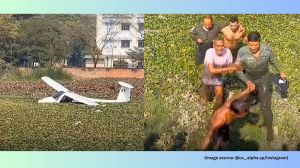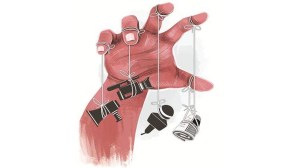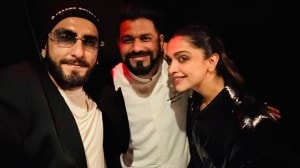Right to be defended
Recent calls by bar associations of Jammu Kashmir and Allahabad high courts directing lawyers not to appear and defend suspected militants...

Recent calls by bar associations of Jammu 038; Kashmir and Allahabad high courts directing lawyers not to appear and defend suspected militants and terrorists are utterly unprofessional and also unethical. Every accused person, whatever may be the nature and gravity of the accusation, has a constitutional right to legal representation. The presumption of innocence is a fundamental feature of every civilised criminal justice system, including ours. It must always be remembered that when an advocate pleads for the acquittal of his client, it is on the ground that the charges against him do not fulfil the statutory ingredients of the offence and that in any event the evidence on record falls short of establishing his guilt. The personal conviction of the advocate about his client8217;s innocence is irrelevant. Indeed, it is improper for an advocate to state his personal belief to the court.
Dr Johnson pungently observed that an advocate is briefed to argue and not to act as a judge. Therefore, he should urge all points of law and fact which the accused would do in his defence if he were equipped with the requisite knowledge and skill. An advocate may refuse a brief if he finds himself in a position of conflict of interest or for domestic reasons. But an advocate by reason of his high calling and profession cannot refuse a brief because public opinion is hostile to his client or because the advocate would become unpopular if he defends the accused, incur the displeasure of the powers that be, and be visited with adverse consequences. An advocate who refuses to appear for detenus or suspected terrorists for these considerations is a coward and betrays the independence and high traditions of the Bar. There were quite a few of this species during the Emergency, who, however, sang a different tune in praise of human rights after the Emergency was revoked.
Thomas Paine, author of the controversial Right of Man, was charged with serious criminal offences for his vehement attacks on the constitution and the government of England. Thomas Erskine, a lawyer of outstanding ability and integrity, was retained by Paine. Erskine was publicly reviled for defending Paine. Erskine justified his conduct in these memorable words: 8220;I will forever, at all hazards, assert the dignity, independence, and integrity of the English Bar, without which impartial justice, the most valuable part of the English constitution, can have no existence8230; If the advocate refuses to defend, from what he may think of the charge or of the defence, he assumes the character of the judge, nay, he assumes it before the hour of judgment, and in proportion to his rank and reputation, puts the heavy influence of perhaps a mistaken opinion into the scale against the accused.8221;
Ram Jethmalani acted in the Erskine tradition when he appeared for the murderers of Indira Gandhi and refused to return the brief despite pressure from some political parties and high personages. Despite popular prejudice and hysteria, lawyers should not act contrary to the traditions of the bar and maintain its independence and disregard boycott calls and threats by bar associations and others.
Charity 038; entertainment
Indisputably, fashion shows and glamour events are entertaining. But are they exempt from entertainment tax? Our Supreme Court rejected the claim of the organiser that a fashion show held at Gorakhpur for the selection of Mr Gorakhpur and Miss Gorakhpur was a charity show organised to publicise the setting up of an institute of art, fashion designing and modelling by the Cambridge Inertia Group, and that the object was educational, and therefore, no entertainment tax was leviable. Justice Kabir, speaking for the court after referring to the advertisements issued in connection with the fashion show, perceptively observed that the object of the show was to invite people to come and watch the new world of glamour and modelling and to see the world of exotic fashion in Gorakhpur itself. There is nothing wrong in enlivening the dull atmosphere of Gorakhpur so long as entertainment tax is paid, he said.
Photos
- 01
- 02
- 03
- 04
- 05


